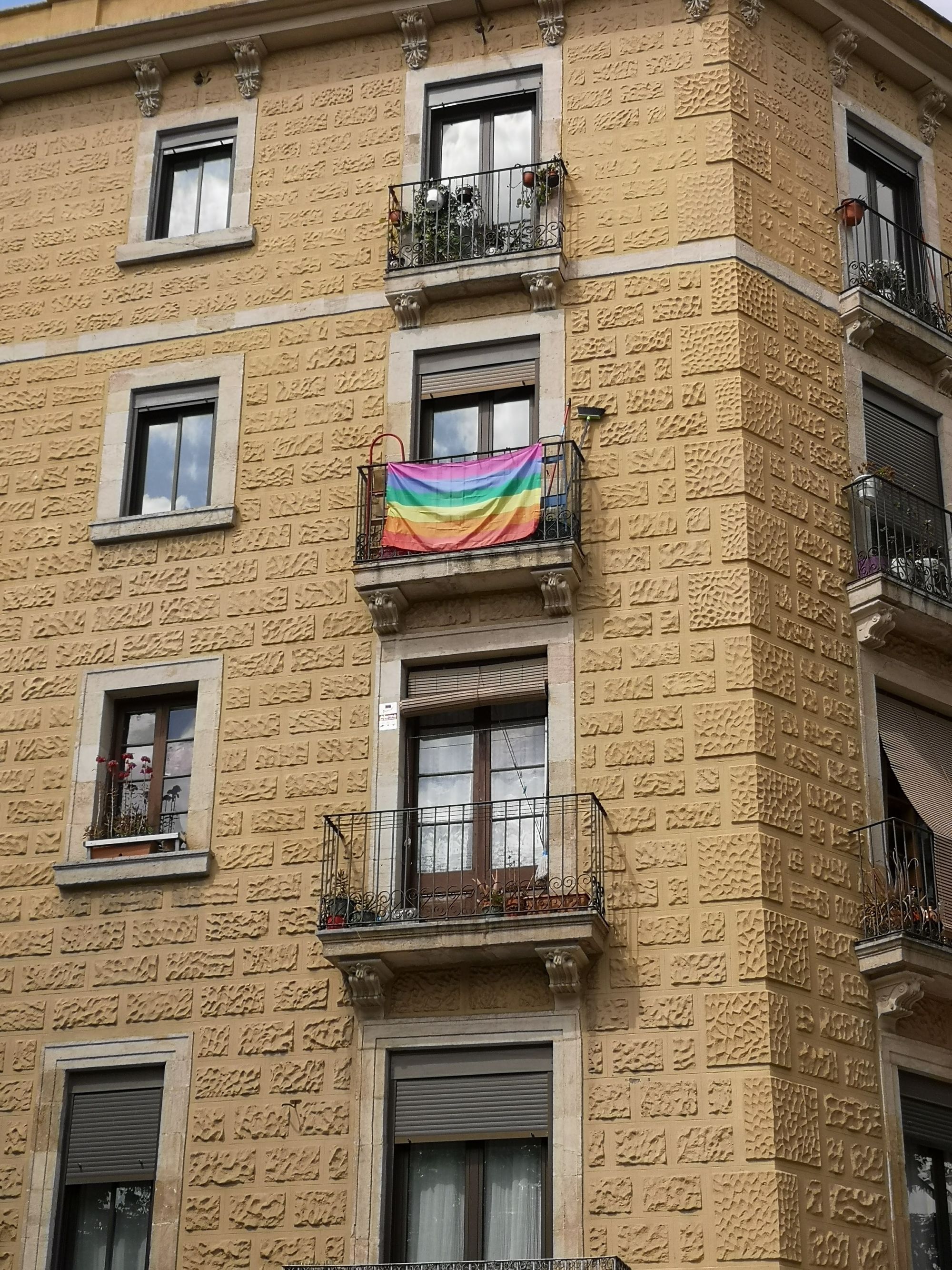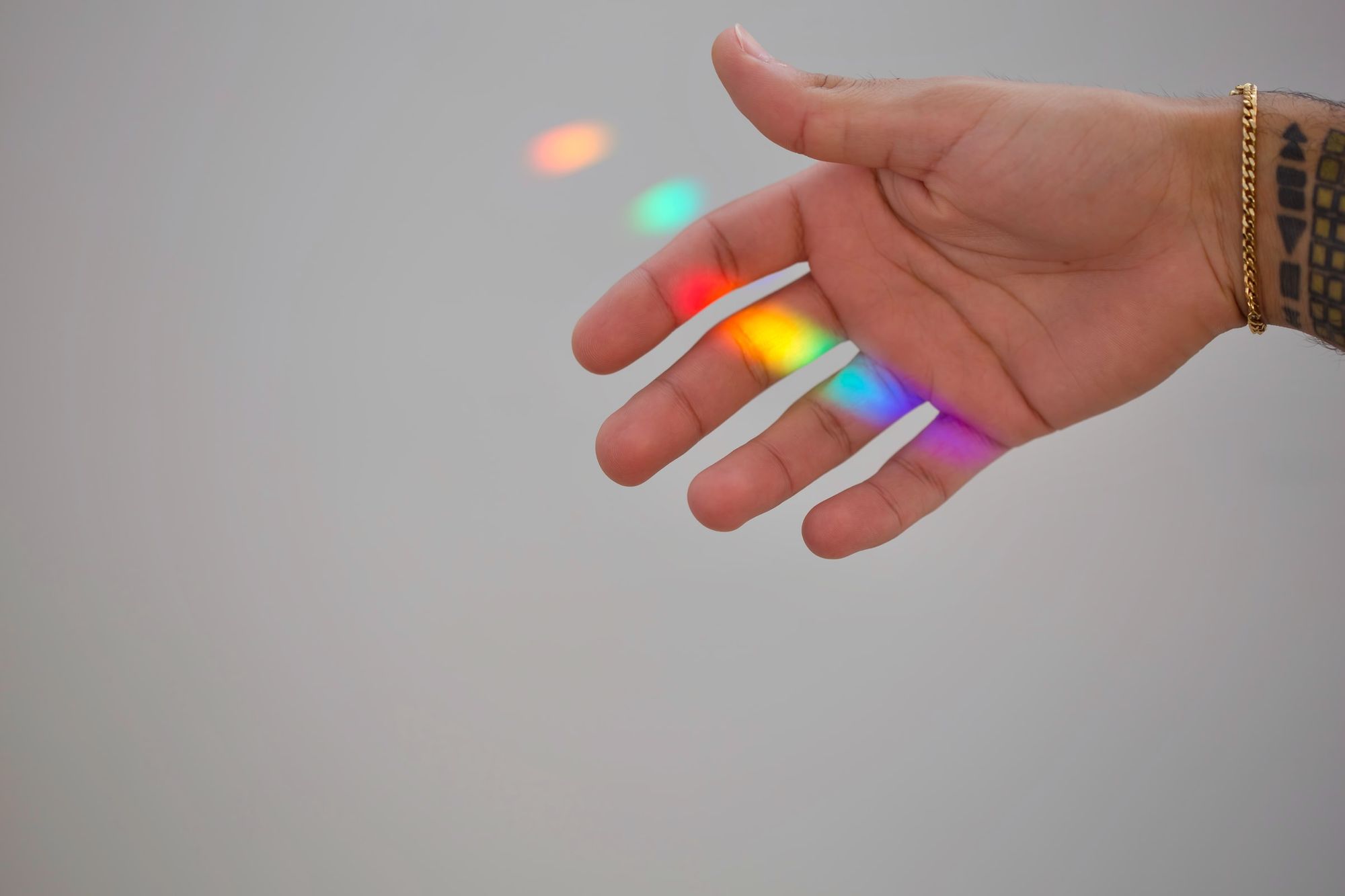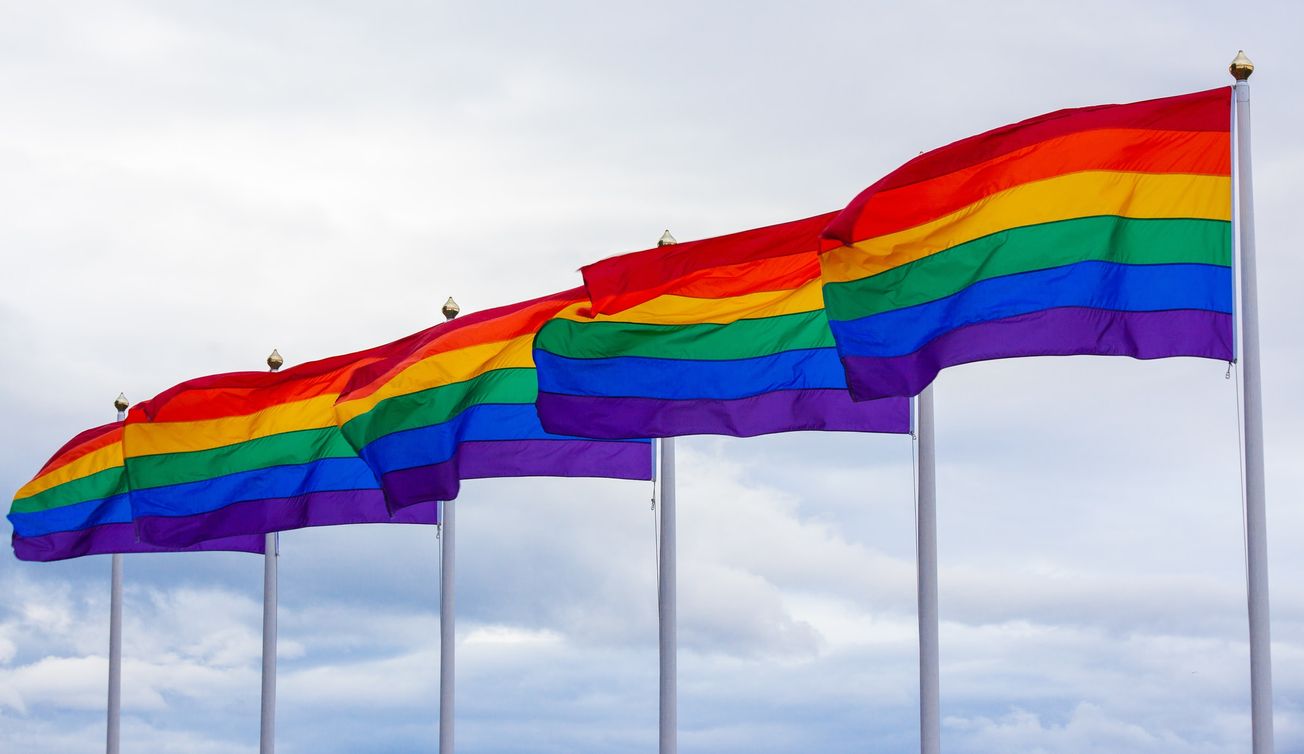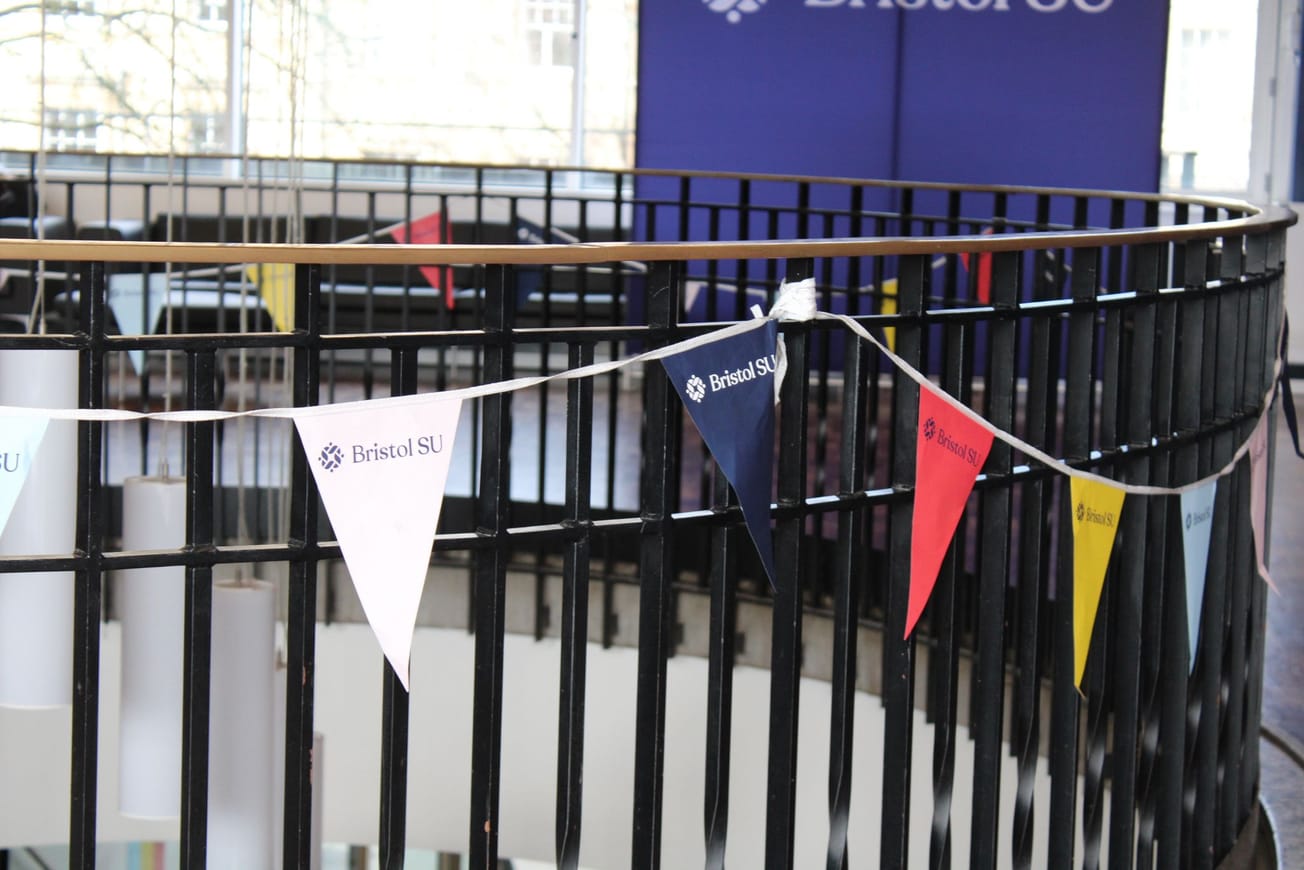By Alice Clarke, Second Year History
After 12 months in and out of lockdown , many students will be thinking back to a time just a year ago when the night could be spent in the club rather than in bed by 8pm. Needless to say, the past year has had an immeasurable impact on everyone - much of which we are yet to see. However, certain groups have felt the impact of the pandemic disproportionately.
The queer community feel negativity and push-back specific to their lived experience; this perhaps has only been heightened during the pandemic. How have LGBTQ+ students been impacted by lockdown? Is this specific to the queer community and what needs to change ?

Lockdown has limited ease of access to support, affirmative spaces and queer peers, all of which can be vital to LGBT+ students. Being disconnected from the LGBTQ+ community is difficult and isolating. This, for many students, has been paired with the toll of having to live in toxic, unsafe or even dangerous home environments during lockdown.
Many students have returned home whilst some have stayed in their student house; whoever this may be, the pressure of being confined in a house where one feels unable to be themselves has dangerous implications on many levels. Laia Bécares, one of the researchers behind UCL and Sussex University’s ‘Queerantine’ study, has noted how many queer people have 'had to go back into the closet and live with people who either didnt know their sexual orientation or gender idenitity, or were not supportive of it.'
The detrimental impact of lockdown on mental health is clear, especially within the queer community. The LGBTQ+ community faces specific pressures due to their identity and this inevitably takes a toll on mental health. This is not just the experience of the individual but that of a collective.
The pressure of being confined in a house where one feels unable to be themselves, has dangerous implications on many levels.
The impact on the mental health of LGBTQ+ people is not being recorded or measured by the government, but is very visible; this is a criticism central to Queerantine’s findings. Members of the LGBT+ community have felt they have had to 'get back into the closet' in order to feel safe during the pandemic.
The visceral impact of new, enforced isolation can be even more dangerous and urgent for many members of the LGBT+ community. The ultimate impact of lockdown has enforced an even more physical and tangible difficulty in the steps to get help when in an unsafe household - an already difficult process, made harder by curfews and restrictions on contact. Abuse can range from verbal to physical, and as a result of homophobia, transphobia or domestic abuse. It's important to note that the LGBT Foundation considers the dismissal of one's gender identity or sexual orientation a form of abuse.
The main provider of domestic abuse services in Bristol, Next Link, has reported a 35 per cent increase in uptake for their services during the pandemic. A public health expert looking at domestic abuse during lockdown for Bristol City Council has said that they know 'anecdotally' that there are a high number of LGBTQ+ people acessing support services during lockdown, particularly men. Domestic abusers are not just partners, they can be parents, family, or members of one's household.
As a second lockdown has come into force in England, we would like to highlight that LGBT+ youth organisations are still able to offer support. We see you and we hear you.
— Cara-Friend (@CaraFriendNI) November 6, 2020
See the contact details of some of our amazing colleagues in the UK and Ireland offering support below. pic.twitter.com/dyUMLctAQn
Galop is a UK based LGBT+ anti-violence charity. They have observed that since the beginning of the lockdown, they have faced up to twice the weekly demand for their support line and have noted how young queer people are even more likely to be affected. Leni Morris from the charity thinks understanding surrounding domestic abuse and violence needs to open up and include LGBT+ experiences, noting how important it is that 'everybody' can be affected - this should not just be the responsibility of queer charities alone.
Speaking to our SU Equality, Liberation and Access Officer, Jason Palmer, important points were raised about the experiences of LGBT+ students. The difficulties of being a queer student in this time have been intensified with the immediacy of lockdown.
Jason said how 'it's a Catch-22 for many LBGT+ Students: Either go back home to a potentially phobic household , or stay at uni where everyone you know may have gone back, with no LGBT+ community spaces for you to access.'

Jason said how it was notable at the beginning of term and during November how more students were getting in touch facing concerns regarding isolation. Notably, 'especially the case for some international LGBT+ students whose home countries do not have as thriving LGBT+ communities as there are in Bristol.'
A student at Bristol who wishes to remain anonymous has said how 'lockdown has brought good and bad things'. On a more positive note, they were able to experiment with their gender expression as going out was not an option. They said this has given them time to feel 'more confident and less worried about how others will perceive me.'
Yet, much like many have seen, lockdown has negatively impacted them in other ways. Accessibility to therapy as an international student was restricted once they had to travel home for lockdown; with limited numbers of LGBT friendly therapists in their country, they had a long wait to be able to return to the UK and access therapy which had been long awaited. Naturally, this ordeal they feel has 'affected my academic performance.' This will be an experience felt by many LGBT+ students.
On a more positive note, some students were able to experiment with their gender expression as going out was not an option.
Marten Payne, Chair of the Bristol SU Trans Students’ Network, has spoken about how he has experienced the isolating impact of lockdown first hand. Noting a lack of in-person contact, he told Epigram how 'it's hard to tell how people are feeling without seeing them in person', as network this is a personal worry for those in the network. Marten explained:
'Often, LGBT+ people who may feel isolated in life anyway particularly struggle in lockdown. As well as losing access to inclusive physical spaces and supportive people, many must deal with unsupportive family or dangerous home environments. These can be incredibly damaging to LGBT+ people's physical and mental wellbeing.'
Marten told Epigram that the Trans Network is a welcoming community, accessible despite lockdown through Facebook and Discord; he urges anyone who needs it to not 'be afraid to seek support.'
If you are LGBT and going through lockdown with an abusive partner or family, there is help.
— Ben Hunte (@BenInLDN) November 11, 2020
The UK has a National LGBT Domestic Abuse Helpline: 0800 999 5428 ☎️
I’ve been speaking to LGBT people who suffered in silence...pic.twitter.com/1gs7LrWY7B
As ELA officer, Jason, highlighted, this an important issue that needs to be addressed. Though the move to online support has widened access to some, this closeness to home can be a challenge to many. What needs to be addressed is the delivery and accessibility of resources.
For Jason, it is 'not a matter of "more resources", but about how we make sure those resources reach those that need the most, and resources that look at the intersectional experiences of the pandemic on LGBT+ people should definitely be welcome.'
We need to look at the long term, and establish foundational support that can be accessed at all times, not just in the midst of the pandemic. Jason notes how there is focus on the 'right now' but the long-term impact of Covid on LGBT+ has not yet been explored.
What is important for the LGBT+ community now and with the lifting of lockdown insight, is highlighting support, lines of communication and positives that can be held onto. For Bristol students; the LGBT+ network, Trans Network and LGBT+ Society can offer positivity, affirmation and a respite from feelings of isolation and a community to join if you are struggling alone.
I will leave you with some words of hope and positivity from Jason that stuck with me:
'LGBT+ communities have historically demonstrated resilience in the face of adversity and I think it’ll be no different this time. I’m certain we’ll see a whole host of community driven events to reconnect us to each other, the spaces we once used to hang out in, and the new ones we have yet to experience.'
'Personally, I’m hopeful we’ll be able to have some Pride events this summer! I got to attend my first Pride in 2019 and it honestly filled me with joy - wholesome goodness.'
Support Services Available:
Mindline Trans (0300 330 5468)
Switchboard (0300 330 0630)
Galop LGBT+ Hate Crime Helpline (020 7704 2040)
National Lesbian, Gay, Bisexual and Trans+ Domestic Abuse Helpline (0800 999 5428)
Off The Record (Mental Health Support)
Hidayah (Support for LGBT Muslims)
10 Ways to Safely Affirm Your LGBT Identity During Lockdown
https://lgbt.foundation/domesticabuse/10way
Featured Image: Unsplash / Jasmine Sessler









